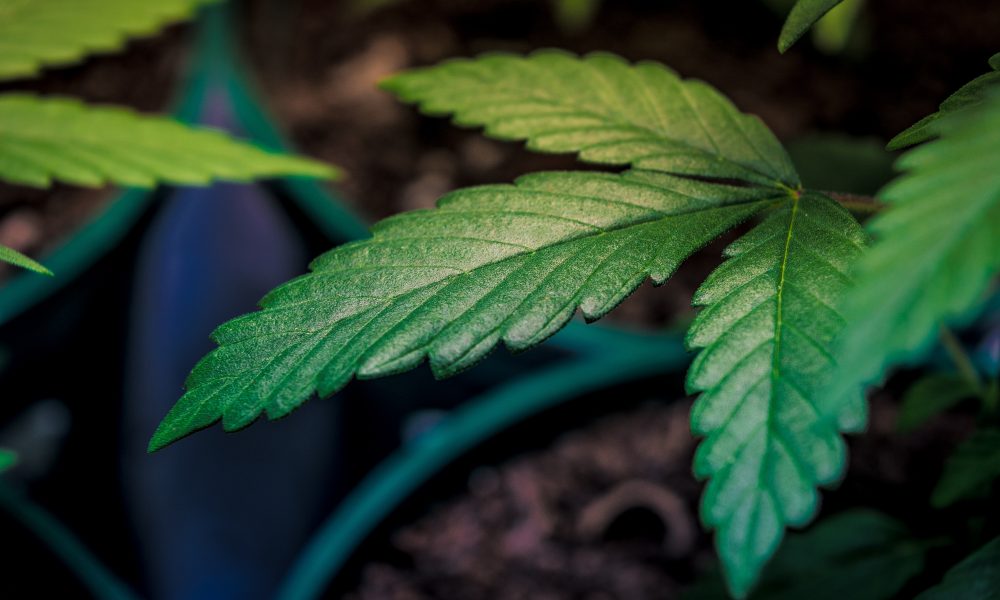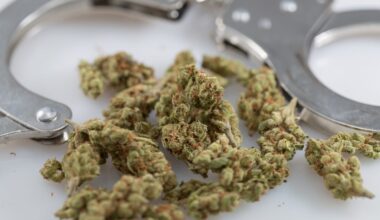South Dakota activists say they’re falling behind on signature gathering for a ballot initiative to legalize marijuana in the state—and they’re urging supporters to step up their efforts to secure the remaining signatures ahead of a looming turn-in deadline next month.
South Dakotans for Better Marijuana Laws (SDBML) held a press conference on Wednesday to give a status update on the campaign and convey the urgency of collecting the remaining signatures to give voters a chance to decide on reform after the legislature failed to enact it this year.
Matthew Schweich, campaign director of SDBML, said that the campaign’s conservative estimate of how many valid signatures they’ve currently processed is around 13,500. In order to qualify for the ballot, activists will need to submit 16,961 legitimate signatures from registered voters to the state by May 3.
South Dakota voters already approved legalization during the 2020 election, but the reform was struck down by the state Supreme Court following a challenge from the governor’s office.
Schweich said that the court ruling was an “injustice,” but “we can’t change that.” However, he said that “what we do have control over is getting on the ballot—so let’s go get on the ballot.”
He said that this is not a “red alert” scenario for the campaign, but it is a “yellow alert.” And to that end, he laid out ways that activists plan to make up the signature deficit over the next three weeks to get into a comfortable place to qualify.
For one, the campaign has opened a petition hotline that people can call or text to learn about where they can go to add their signature. They’re also encouraging people to volunteer to college signatures from others and are hiring paid petitioners, starting at $22 per hour.
There will be signature gathering events in major cities like Grand Rapids over the next couple weekends, including a drive-thru collection event so that people don’t even need to leave their vehicle to add their names to the petition.
SDBML is also acutely aware that cannabis icon Snoop Dogg will be performing in Sioux Falls next week, Schweich said. The campaign will be leveraging that event to collect signatures, too.
“We’ve got 20 days left to finish this signature drive, and we need to work really hard,” he said.
Following the court ruling striking down the earlier voter-approved legalization measure, activists decided to take a two-track approach to the reform in 2022, both working with legislators for a legislative reform while separately collecting signatures for a ballot initiative if lawmakers failed to act.
While they would have preferred lawmakers to enact the policy change, that did not pan out this session. The House rejected a Senate-passed legalization bill last month, effectively leaving it up to activists to get on the ballot again.
Here’s what the campaign’s marijuana legalization ballot initiative would accomplish:
The measure would allow adults 21 and older to purchase and possess up to an ounce of cannabis. They could also grow up to three plants for personal use.
It also lays out civil penalties for violating provisions related to issues such as public consumption or growing more plants than permitted.
Employers would specifically be allowed to continue enforcing workplace drug policy prohibiting cannabis use by workers.
State and local governments could continue to ban marijuana activities made legal under the initiative in buildings “owned, leased, or occupied” by a governmental body.
The measure does not touch on regulatory policies concerning taxing cannabis sales, licensing or equity.
SDBML’s 2020 success at the ballot was overruled by the state Supreme Court as a result of a legal challenge funded by Gov. Kristi Noem’s (R) administration. The court ruled that the measure violated a single-subject rule for ballot initiatives.
“The ruling, I think, was deeply, deeply flawed—but we are where we are,” Schweich said. “And right now, we need more signatures. And we need everybody to step up across the state.”
He also said that the campaign has been operating on a “shoestring budget,” in large part because of the money it spent trying to defend the previous voter-approved legalization initiative in court.
“Now is the time to step up. And if enough people step up in the next 20 days, we will finish the signature drive with a nice healthy buffer that absolutely guarantees qualification,” Schweich said. “What I don’t want is for us to just squeak by and that buffer to be so slim that our opponents [try] to take us to court again. I’ve had enough court—no more court.”
A Marijuana Interim Study Committee, headed by legislative leaders, was established last year to explore cannabis policy reform, and the panel ultimately recommended that the legislature take up legalization this session. The House-defeated legislation was one of the direct products of that recommendation.
—
Marijuana Moment is already tracking more than 1,000 cannabis, psychedelics and drug policy bills in state legislatures and Congress this year. Patreon supporters pledging at least $25/month get access to our interactive maps, charts and hearing calendar so they don’t miss any developments.![]()
Learn more about our marijuana bill tracker and become a supporter on Patreon to get access.
—
Even if the legislature had enacted the bill, however, the governor would have likely posed a threat. She declined to rule out vetoing the legalization legislation on the day it passed the Senate in February. She also confusingly questioned voter support for the reform despite the fact that they approved it at the polls two years ago.
Noem’s office also recently suggested that the activists behind that voter-approved initiative should pay the administration’s legal fees of the lawsuit that invalidated the will of voters—a proposal that the campaign called “ridiculous.”
While a recent poll found that most South Dakota voters approve of Noem’s job performance overall, just 39 percent approve of her handling of marijuana legalization, with 51 percent disapproving. The governor is up for reelection this year.
Noem has consistently faced criticism from advocates and stakeholders over her early opposition to cannabis reform.
She released an ad ahead of last year’s election urging residents to vote against the legalization initiative that ultimately passed, 54-46 percent.
More recently, however, the governor seems to be trying to associate herself with the implementation of a separate medical cannabis legalization initiative that voters also overwhelmingly approved in 2020, despite having opposed the proposal in the run-up to the election.
After regulators approved rules for the medical marijuana program in September, Noem said her administration “is fully on board to make certain South Dakota continues to implement the most responsible, patient-focused medical cannabis program in the country.”
Noem tried to get the legislature to approve a bill to delay implementation of the medical cannabis program for an additional year, but while it cleared the House, negotiators were unable to reach an agreement with the Senate in conference, delivering a defeat to the governor.
In response, her office started exploring a compromise last year, with one proposal that came out of her administration to decriminalize possession of up to one ounce of cannabis, limit the number of plants that patients could cultivate to three and prohibit people under 21 from qualifying for medical marijuana.
Pennsylvania Senate Approves Marijuana Banking Bill, Sending It To The House
Medical Disclaimer:
The information provided in these blog posts is intended for general informational and educational purposes only. It is not a substitute for professional medical advice, diagnosis, or treatment. Always seek the advice of your physician or other qualified healthcare provider with any questions you may have regarding a medical condition. The use of any information provided in these blog posts is solely at your own risk. The authors and the website do not recommend or endorse any specific products, treatments, or procedures mentioned. Reliance on any information in these blog posts is solely at your own discretion.







